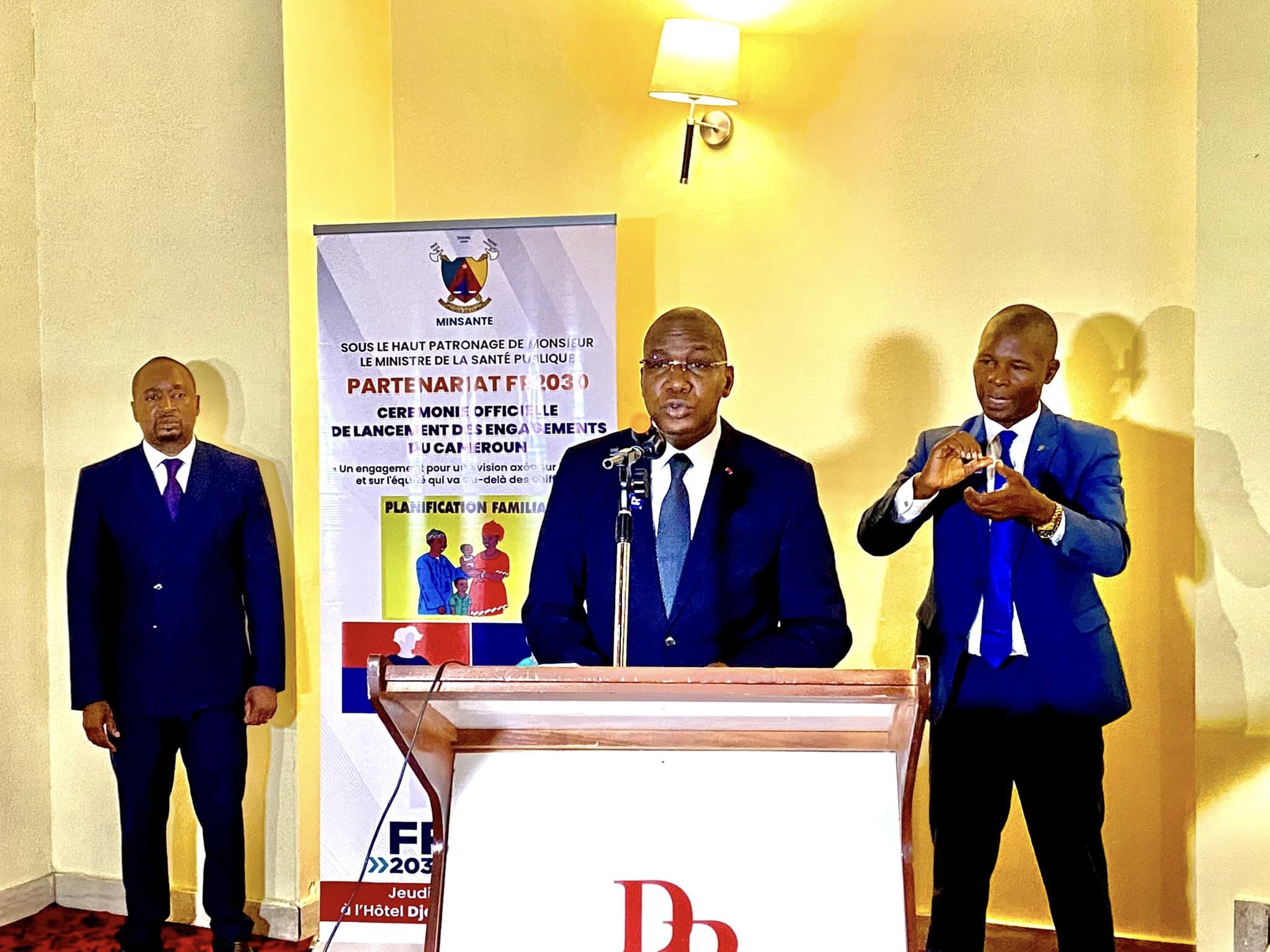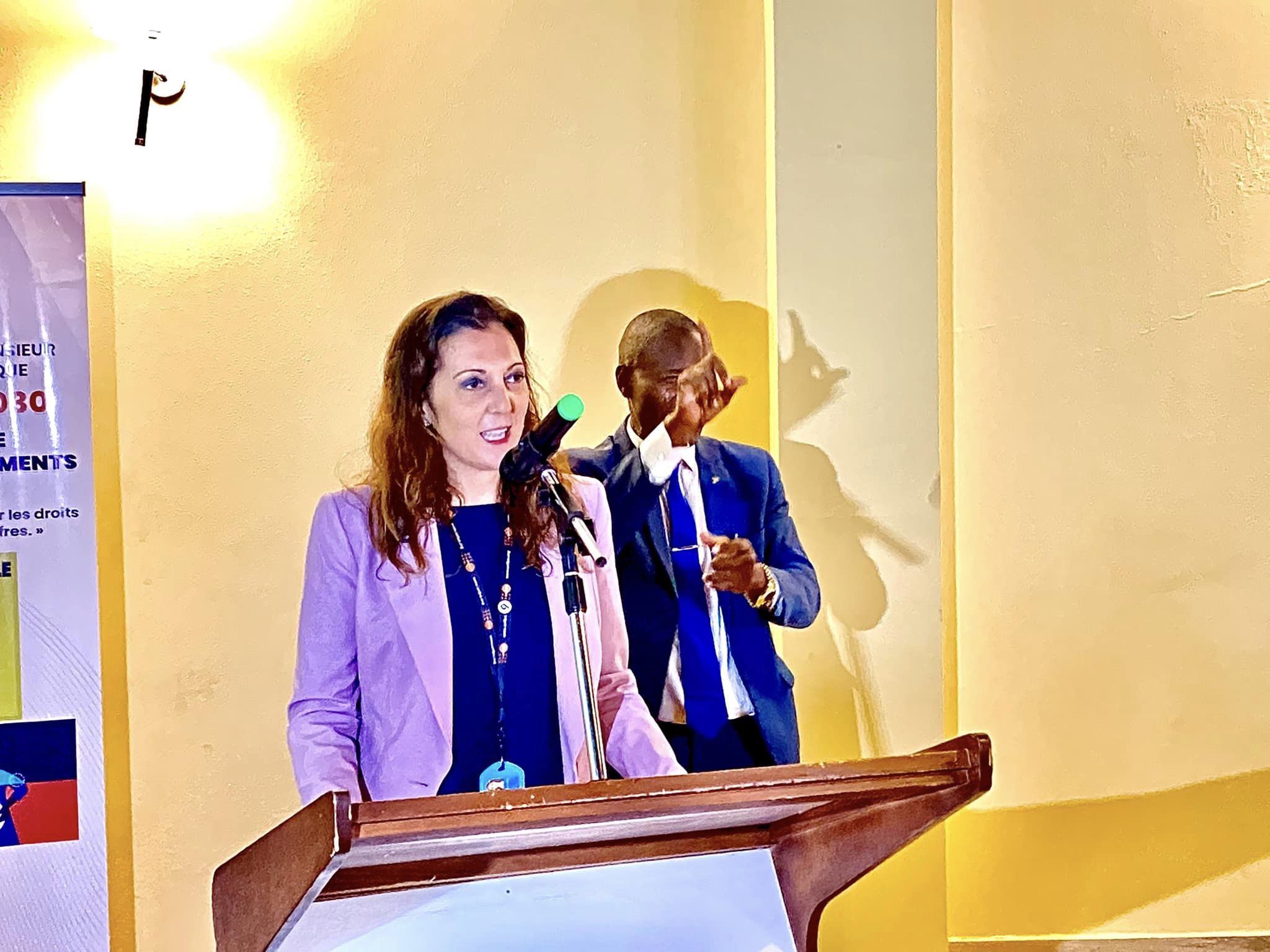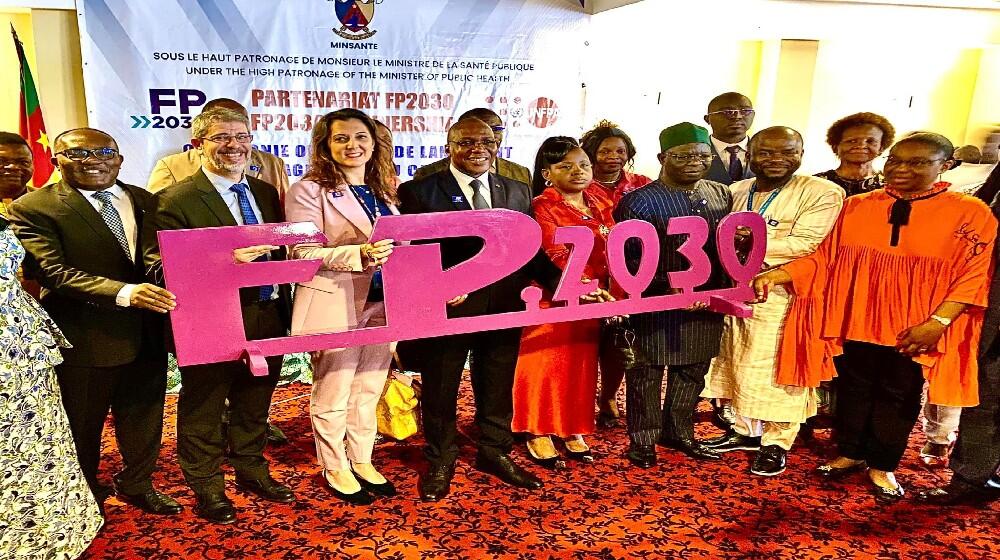Yaounde, Cameroon –The Minister of Public Health, Dr. Manaouda Malachie and UNFPA’s Deputy Representative, Noemi Dalmonte, officially launched Cameroon’s Family Planning commitments to increase access & voluntary use of modern contraceptive methods by 2030 (FP2030). The ceremony which took place on June 29th 2023, brought together development and civil society stakeholders involved in sexual and reproductive health.

Photo: UNFPA Cameroon, June 2023.
By signing the FP2030, the Government of Cameroon confirmed its commitment to mobilize domestic resources to satisfy the unmet needs for Family Planning which are estimated at 23% among married women and 47% among young women.
"This initiative aims to ensure that young girls & women have the right to clearly plan their process of procreation in order to limit, among others, the risks of unwanted pregnancies & maternal mortality due to the absence of protective measures for women". Dr. Manaouda Malachie, Minister of Public Health.
Some of Cameroon’s priorities to be achieved by 2030 include:
- Increase contraceptive prevalence from 15.4% to 35%.
- Reduce unmet need for FP from 23% to 10%.
- Further mobilize the private sector to provide Family Planning.
According to the DHS 2018, Cameroon's maternal mortality ratio is 406 deaths per 100,000 live births. DHS further highlights that Family Planning has the ability to reduce maternal mortality by 40% in Cameroon. It is in this light that Government has taken these FP2030 commitments to improve access for women and girls to Sexual and Reproductive Health services and products. "We are working to improve and expand voluntary family planning services for women and youths." Says Noemi Dalmonte, UNFPA Deputy Representative.

Photo: UNFPA Cameroon, June 2023
FP2030 is a global partnership initiative that situates family planning at the crossroads of the health, development, and gender equality agenda. Its main focus is to increase access to rights-based, voluntary family planning, regardless of where someone lives, their age, gender, marital status or physical ability.


